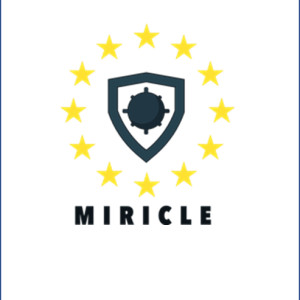Event Calendar
Find out what's happening in the area of Horizon Europe, Digital Europe and Horizon 2020
OSCARS Second open call for Open Science projects online launch event
The OSCARS project (Open Science Clusters’ Action for Research and Society) organises an online launch event of the OSCARS Second open call for Open Science Projects. This launch event will provide information on the second OSCARS open call for Open Science and gives the opportunity to ask any question related to the call. The launch event is open to researchers from all scientific disciplines, data scientists and members of research infrastructures. The agenda and registration form for the launch event.
During the OSCARS project two open calls will be launched
To support the research communities to take up open science and foster the involvement of scientists in the European Open Science Cloud (EOSC), OSCARS will launch two open calls (in total worth about 16 million Euro) to select third-parties for the development of new, innovative Open Science projects or services, that together will drive the uptake of FAIR-data-intensive research throughout the European Research Area (ERA). Projects can be proposed in the field of any of the Science Clusters by any researcher, or group of researchers, through a cascading grant mechanism. The first open call closed on 15 May 2024 (overview of funded projects), the second call will open on 15 November 2024 and close on 15 January 2025.
What is the OSCARS project about?
OSCARS brings together world-class European Research Infrastructures (RIs) in the ESFRI roadmap and beyond to foster the uptake of Open Science in Europe. Such RIs are part of the five Science Clusters (Humanities and Social Sciences (SSHOC), Life Sciences (LIFE SCIENCE RI), Environmental Sciences (ENVRI), Photon and Neutron Science (PANOSC), Astronomy, Nuclear and Particle Physics (ESCAPE)), which have strived to make open data easily accessible to the users and the public, by providing FAIR data management policies and practices for enabling Open Science. Today, the Science Clusters are an integral part of the EOSC initiative and, through OSCARS, will further contribute to its development and implementation process.
myOVERVIEW
-
sign up for personalised information
We offer news and event updates, covering all domains and topics of Horizon Europe, Digital Europe & EDF (and occasionally, for ongoing projects, Horizon 2020).
Stay informed about what matters to you.
By signing up, you can opt in for e-mail notifications and get access to
a personalised dashboard that groups all news updates and event announcements in your domain(s).
Only for stakeholders located in Flanders
Event calendar
34 upcoming events view event calendarAgro-Food, Environment Missions
Collaborative research with the global South on oceans and marine ecosytems
Testimonial

Miricle - Mine Risk Clearance for Europe
The Miricle project, ‘Mine Risk Clearance for Europe’, obtained funding under the European Defence Industrial Development programme call ‘Underwater control contributing to resilience at sea’. The main objective of the project was to achieve a European and sovereign capacity in future mine warfare and create a path for the next generation ‘made in Europe’ countermeasure solutions. In order to realise this objective, Miricle addressed various stages: studies, design, prototyping and testing. These stages inter alia included the successful testing of an XL Unmanned Underwater Vehicle, a protototyped mine disposal system and multiple innovative systems to detect buried mines. Flanders Marine Institute (VLIZ), was one of the five Belgian partners in the consortium. Within the project, VLIZ was able to forward its research on the acoustic imaging of the seabed to spatially map and visualize buried structures and objects - in this case buried mines - in the highest possible detail. VLIZ also led the work on ‘Port and Offshore Testing’, building on the expertise of the institute in the field of marine operations and technology.

